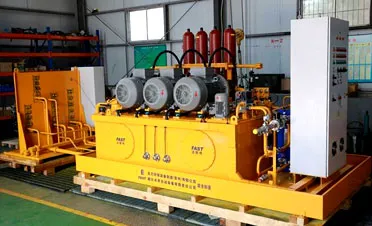die casting
Die Casting An Overview of a Precision Manufacturing Process
Die casting is a manufacturing process that involves forcing molten metal under high pressure into a mold cavity. This technique is renowned for its ability to produce complex shapes with superior dimensional accuracy and smooth surface finishes. Previously dominated by aluminum alloys, the die casting industry has expanded to include a range of non-ferrous metals such as zinc, magnesium, and copper, which have diverse applications across various sectors.
The die casting process typically begins with the creation of a die, which serves as the mold for the desired part. These dies are usually made from hardened steel or other durable materials that can withstand the high pressures and temperatures involved in the process. The quality of the die is crucial, as it directly affects the precision of the final product.
Once the die is prepared, the metal is melted in a furnace and then injected into the mold using a mechanical or hydraulic press. The high pressure ensures that the molten metal fills the entire cavity, eliminating air pockets and minimizing the occurrence of defects. After the metal cools and solidifies, the die is opened, and the newly formed part is ejected.
One of the primary advantages of die casting is its efficiency. The process allows for rapid production times, which makes it an ideal choice for high-volume manufacturing. Additionally, because die casting produces parts that require little to no machining, it significantly reduces material waste and lowers overall production costs. Parts produced through die casting also boast superior mechanical properties, such as strength and durability, due to the controlled cooling process.
die casting

In terms of applications, die casting is extensively used in the automotive industry for manufacturing components such as engine blocks, transmission housings, and other critical parts
. The aerospace sector also utilizes die casting for parts that require high strength-to-weight ratios. Moreover, the consumer electronics industry relies on die-cast components for everything from smartphone casings to computer housings, underscoring the versatility of this manufacturing method.The advancements in die casting technology have led to the development of more sophisticated techniques, such as low-pressure die casting and squeeze casting. Low-pressure die casting employs a gentler method of filling the mold, which is particularly useful for thinner-walled parts and reduces the risk of defects. Squeeze casting, on the other hand, combines die casting and forging, resulting in even denser and stronger parts.
Despite its many advantages, die casting is not without limitations. The initial cost of creating a die can be quite high, which may be a barrier for smaller manufacturers or startups. Additionally, the process is generally more suited for high-volume production runs, making it less economical for low-volume or prototype production. However, for businesses looking to produce large quantities of metal parts with precision, the benefits often outweigh the drawbacks.
Sustainability is becoming a significant factor in all manufacturing processes, including die casting. Manufacturers are increasingly adopting eco-friendly practices, such as recycling scrap metal and using energy-efficient equipment. This shift not only addresses environmental concerns but also enhances the cost-effectiveness of the die casting process.
In conclusion, die casting remains a pivotal method in modern manufacturing, known for its efficiency, capability to create complex geometries, and the production of high-quality components. As technology continues to evolve and industries demand greater precision and sustainability, die casting is poised to remain an integral part of the manufacturing landscape. Whether in automotive, aerospace, or consumer goods, the advantages of die casting make it an enduring choice for manufacturers worldwide.
-
OEM Sand Cast Pump Valve Fittings - Baoding Hairun | Precision Engineering, CustomizableNewsJul.30,2025
-
OEM Sand Cast Pump Valve Fittings - Baoding Hairun Machinery And Equipment Trading Co., Ltd.NewsJul.30,2025
-
OEM Sand Cast Pump Valve Fittings - Baoding Hairun Machinery And Equipment Trading Co., Ltd.NewsJul.30,2025
-
OEM Sand Cast Pump Valve Fittings - Baoding Hairun Machinery|Precision Engineering&Fluid ControlNewsJul.30,2025
-
OEM Sand Cast Pump Valve Fittings - Baoding Hairun Machinery And Equipment Trading Co., Ltd.NewsJul.30,2025
-
OEM Sand Cast Pump Valve Fittings-Baoding Hairun Machinery And Equipment Trading Co., Ltd.NewsJul.30,2025















